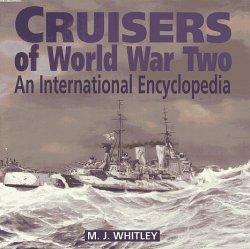Historian Page Smith produced the only full-length history of the United States written by a single author in the 20th century. His People's History of the United States covers the time from the American Revolution through World War II in eight volumes of 800 to 1,000 pages each. I have found him to be a thoughtful, careful historian who sees beyond the mere chronology into the deeper meanings of historic events. In his first of two volumes on the American Revolution he briefly describes the principal elements of colonization, then concludes as follows:
In this hasty review of the founding of the principal colonies, I have tried to convey a sense of the remarkable diversity represented in these ventures. A number of human varieties and social forms, some as old as England itself, others as new as the new commercial and mercantile spirit of the age, were planted in the virgin soil of the New World. There they would grow luxuriantly, each in its particular way, in a vegetative mold made up of new ideas and opportunities. There religious enthusiasm and rigid orthodoxy would shape one colony, while tolerance and a vigorous commercial spirit would place an unmistakable stamp on another. In the South, the best traditions of the English landed gentry would grow on the incongruous foundation of black slavery. In the North, the democracy of the New England village would be nurtured by a spirit that seems to the modern consciousness to be marked by simple religious fanaticism. America was like some strange new garden where all kinds of transplanted vegetables and flowers lived together in vigorous incompatibility, growing with astonishing speed in that fertile ground and developing, in the process, new strains and varieties. The New Englanders indeed liked the image of a new land of Canaan, a refuge for a new Chosen People; other colonists spoke of a Garden of Eden, a world of innocence where humanity might start anew. Perhaps it was this vision of a new world and a new opportunity that ran as a common theme through all the colonies. North or south, all reverberated to that grand chord, a silken thread that tied them all together and that, in time, would become a mighty rope.3
Smith's history of America is not what is sometimes called "triumphalist" history, meaning a history that celebrates everything American without being overly critical, even when criticism is warranted. Smith presents the American story without pulling any punches, warts

And all, as it were. In the process he takes on some American myths and puts them to rest.
Myths about American history began with the colonial period, and we will discuss some of them as we proceed. Perhaps the first thing to discuss would be the so-called "push-pull effect," which would evaluate the colonial process both by what attracted immigrants to America and by the conditions in Europe that "pushed" them to leave their homeland. In England and in much of Europe, the poor were chronically unemployed, and opportunities to rise out of poverty were scarce; by comparison, almost any alternative might have seemed promis-ing—Europe in 1600 had lots of push. On the other hand, conditions in early America were difficult, to say the least, but the "pull factor" was helped by what can only be characterized as propaganda. Proprietors of the companies that sponsored American colonies quickly realized that settlers were needed if their investments were to show a return, and their efforts to recruit settlers made the New World appear far more attractive than conditions warranted. Thus the first myth which we might challenge is that of the New World as "Utopia— the land of opportunity."
Despite Smith's rather positive description above, he understands that the settlement of America was neither easy nor simple—the forces that brought colonists from Europe were complex, as were the many changes that being in a new, alien environment engendered in the colonists. The odds were high that those brave souls would meet an early death, either during the dangerous sea voyage—when storms often alternated with periods of little wind, when food and water would go bad and sickness rampaged through the passenger holds—or from disease, Indian attack, or even starvation once they arrived in the New World. They came for a variety of reasons, but all wanted a better life. Carving a better life out of the vast wilderness the early colonists found in North America challenged even the hardiest of those early pioneers.




 World History
World History









